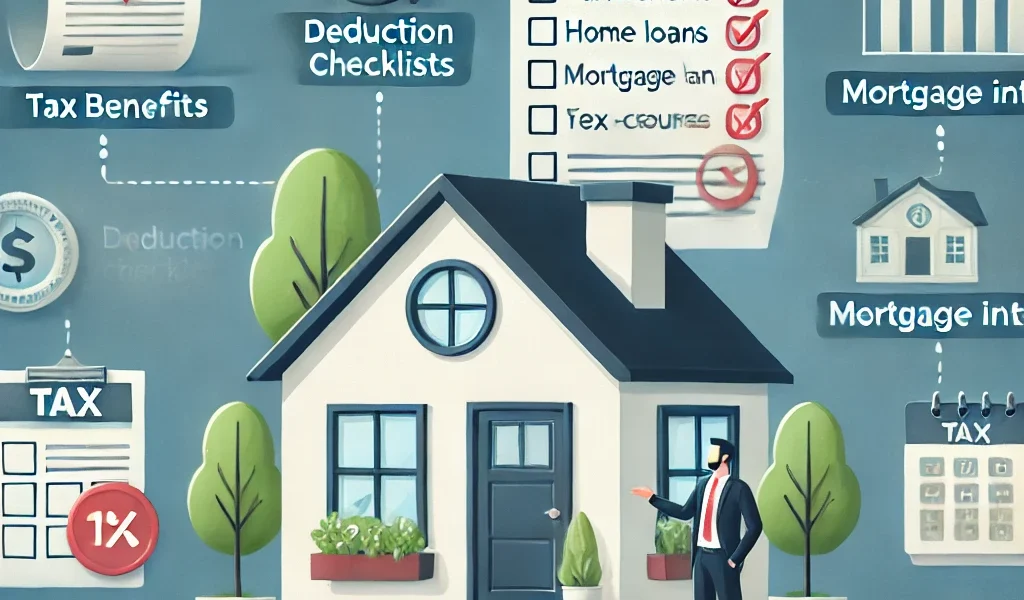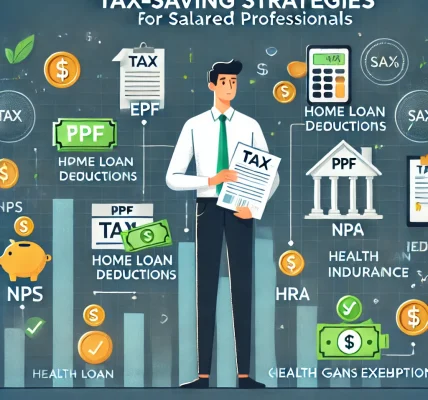Owning a home is a significant milestone and a financial commitment. While purchasing a home requires substantial investment, tax benefits on home loans and mortgage interest can help homeowners save money. Understanding these tax benefits can optimize your financial planning and maximize deductions. In this guide, we will explore how homeowners can leverage tax benefits, deductions, and strategies to reduce their taxable income legally and effectively.
Understanding Home Loan Tax Benefits
Home loans come with several tax benefits that can ease the financial burden of homeownership. These benefits typically fall under the following categories:
- Deduction on Mortgage Interest
- Deduction on Principal Repayment
- Tax Benefits on Home Equity Loans
- First-Time Homebuyer Benefits
1. Mortgage Interest Deduction
The Mortgage Interest Deduction (MID) is one of the most valuable tax benefits available to homeowners. Here’s how it works:
- Homeowners can deduct the interest paid on a mortgage loan up to a specific limit.
- The mortgage must be for a primary or secondary residence.
- The loan must be secured by the property.
Eligibility for Mortgage Interest Deduction
- The property must be a qualified home (primary or secondary residence).
- The loan amount should not exceed IRS limits (up to $750,000 for married couples filing jointly or $375,000 for single filers).
- The taxpayer must itemize deductions instead of taking the standard deduction.
2. Principal Repayment Deduction
- In some jurisdictions, the principal repayment of a home loan is eligible for tax deductions.
- The tax benefits on principal repayment may be limited based on income and loan structure.
3. Home Equity Loan Interest Deduction
- Homeowners who take out a home equity loan or a home equity line of credit (HELOC) can deduct interest if the funds are used for home improvements.
- Interest on home equity loans used for personal expenses (vacations, debt consolidation, etc.) is not deductible under current tax laws.
Tax Benefits for First-Time Homebuyers
Some governments offer incentives and tax credits for first-time homebuyers. These may include:
- Tax credits for down payments or closing costs
- Mortgage credit certificates (MCCs) that allow homebuyers to claim a portion of their mortgage interest as a direct tax credit.
- Deductions for property tax payments
Property Tax Deductions
Homeowners can also deduct property taxes paid to local and state governments. However, property tax deductions are subject to limits and may vary by region.
Additional Tax Strategies for Homeowners
1. Refinancing Your Mortgage
Refinancing your mortgage may help lower interest rates and provide additional tax benefits:
- Homeowners can deduct interest on the refinanced mortgage within IRS limits.
- Cash-out refinancing interest deductions are allowed only if the funds are used for home improvements.
2. Renting Out Your Home
If you rent out a portion of your home, you may qualify for rental property tax deductions, including:
- Depreciation deductions
- Maintenance and repair deductions
- Property management fee deductions
3. Energy Efficiency Tax Credits
Upgrading your home with energy-efficient systems can qualify you for tax credits such as:
- Residential Energy Efficient Property Credit
- Nonbusiness Energy Property Credit
Conclusion
Understanding tax benefits on home loans and mortgage interest can lead to significant savings. By leveraging mortgage interest deductions, home equity loan benefits, and first-time homebuyer tax incentives, homeowners can maximize financial advantages. Always consult a tax professional to ensure compliance with tax laws and optimize your deductions.
By implementing these strategies, homeowners can reduce their tax liability and make the most of their home investment.




